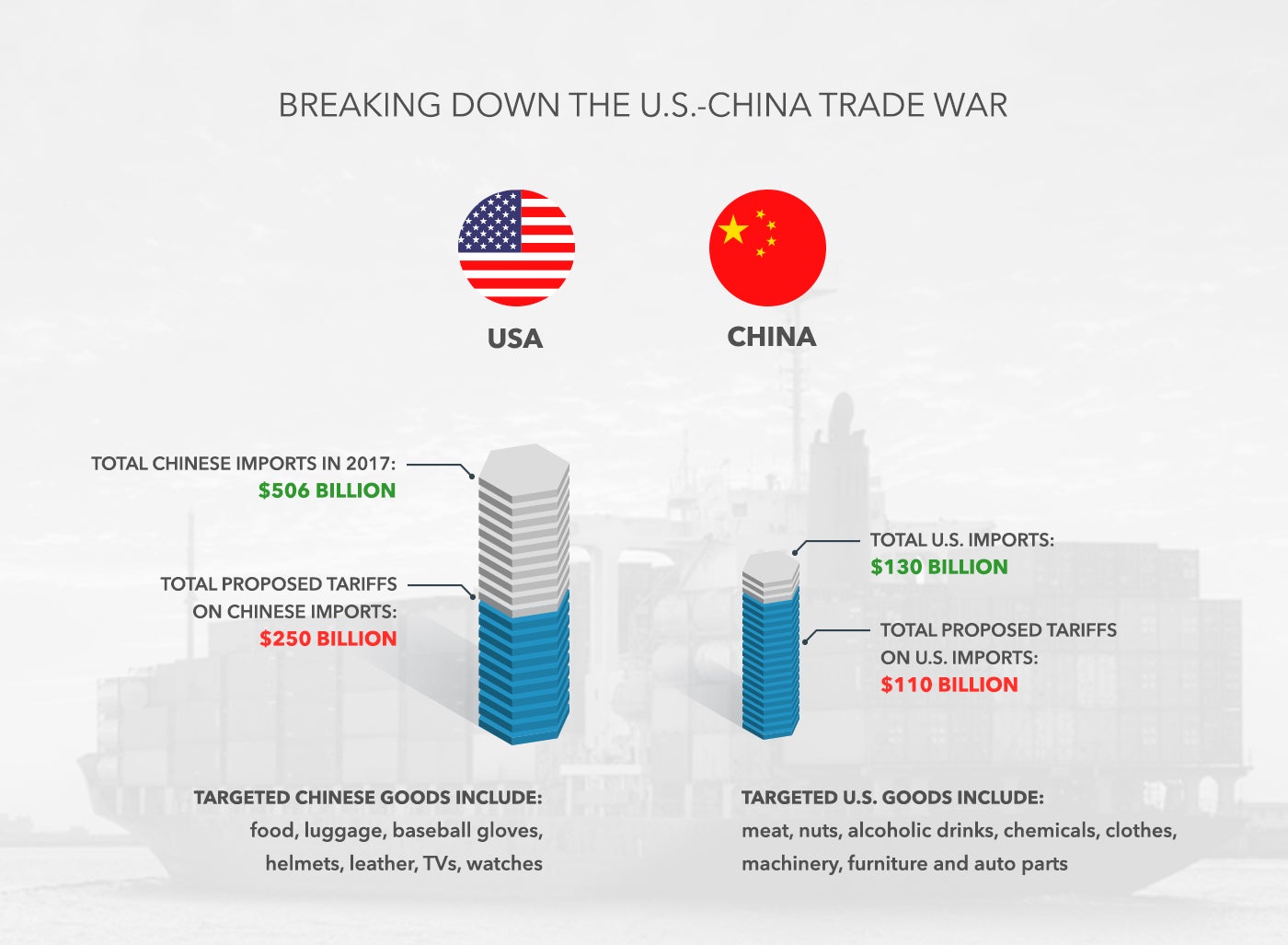The New Workplace Reality: Are Workers Truly Replaceable?

Table of Contents
The Myth of Complete Replaceability
The fear of being replaced by robots is a valid concern in today's rapidly evolving technological landscape. However, the reality is far more nuanced than a simple binary of human versus machine.
Automation's Limitations
While automation has proven incredibly efficient at streamlining repetitive tasks, its limitations are significant. Current automation technology excels at specific, easily defined processes.
- Replaceable jobs: Many routine, manual tasks in manufacturing, data entry, and basic customer service have already seen automation.
- Automation limitations: However, complex problem-solving, creative tasks requiring originality, and situations demanding emotional intelligence remain largely beyond the capabilities of current AI and automation.
- AI limitations: AI struggles with nuanced human interactions, unpredictable situations, and tasks that require genuine empathy and understanding. Self-driving cars, for instance, are still far from perfect in handling unexpected events.
The Human Element
The uniquely human qualities that drive innovation, collaboration, and complex problem-solving remain irreplaceable. These "irreplaceable skills" are what differentiate humans from machines.
- Irreplaceable skills: Creativity, critical thinking, emotional intelligence, adaptability, collaboration, and complex problem-solving are all crucial in today's workplace.
- Human capital: Businesses increasingly recognize the value of human capital – the collective skills, knowledge, and experience of their employees – as a key differentiator.
- Employee value: Employees who possess these skills are not only more valuable to their organizations but also more resilient in the face of technological change. A skilled surgeon, for example, cannot be easily replaced by a robot.
The Evolving Nature of Work
Rather than outright job elimination, technology is driving a significant transformation of work. The "future of work" isn't about humans versus machines; it's about humans with machines.
Job Transformation, Not Elimination
Technology is fundamentally altering how jobs are performed, often augmenting human capabilities rather than replacing them entirely.
- Job evolution: Consider accounting; while many routine tasks are automated, the need for skilled accountants who can interpret complex financial data and offer strategic advice remains strong. Similarly, customer service roles are evolving, leveraging AI for initial interactions but relying on human agents for complex issues.
- Technological transformation: This transformation has also created entirely new roles – data scientists, AI ethicists, and cybersecurity experts are just a few examples of jobs born from technological advancements.
- Future of work: The "future of work" emphasizes collaboration between humans and technology, leveraging the strengths of both to achieve greater efficiency and innovation.
The Upskilling and Reskilling Imperative
Adaptability and continuous learning are now paramount for employees to remain relevant. The "future-proof career" is one that actively embraces upskilling and reskilling.
- Upskilling: Investing in acquiring new skills within one's current field is crucial to stay competitive.
- Reskilling: Completely changing career paths through learning entirely new skill sets allows individuals to transition to emerging industries.
- Future-proof career: To future-proof your career, explore in-demand skills like data analytics, cloud computing, cybersecurity, and AI literacy. Resources such as online courses, boot camps, and industry certifications offer ample opportunities for professional development.
The Value of Human Connection and Expertise
Beyond technical skills, the uniquely human aspects of work retain immense value.
The Irreplaceable Role of Human Interaction
In many sectors, genuine human connection is irreplaceable.
- Human interaction: Customer service, healthcare, education, and social work all heavily rely on empathy, understanding, and the ability to build rapport – qualities currently beyond the reach of AI.
- Emotional intelligence workplace: Emotional intelligence, the ability to understand and manage emotions in oneself and others, is increasingly valued in the workplace.
- Customer experience: Customers often value the human touch, especially when dealing with complex or sensitive issues.
Specialized Knowledge and Experience
Years of training and expertise build unique skills and knowledge which are difficult, if not impossible, to replicate with technology.
- Expertise: Highly specialized professions like surgeons, lawyers, and researchers require years of training and experience to develop the necessary skills and judgment.
- Specialized skills: These "intangible assets" – the accumulated knowledge and experience of individuals – are difficult to quantify but represent immense value within organizations.
Conclusion
While technology is undeniably reshaping the landscape of work, the notion of complete worker replaceability is a myth. Human skills, adaptability, and the uniquely human element are not only valuable but essential for navigating the future of work. The evolving job market demands continuous learning and a willingness to adapt. "Are workers truly replaceable?" The answer is a clear no, provided they actively cultivate and update their skills. Don't be left behind! Invest in your skills and understand what makes you irreplaceable in the new workplace reality. Learn more about the skills that are truly valuable and how to future-proof your career.

Featured Posts
-
 The Wonder Of Animals Conservation Efforts And Future Prospects
May 13, 2025
The Wonder Of Animals Conservation Efforts And Future Prospects
May 13, 2025 -
 Strategic Adjustments How Walleye Cuts Credit Affects Core Commodity Groups
May 13, 2025
Strategic Adjustments How Walleye Cuts Credit Affects Core Commodity Groups
May 13, 2025 -
 A Memoir From Cassidy Hutchinson Unseen Perspectives On The January 6th Hearings
May 13, 2025
A Memoir From Cassidy Hutchinson Unseen Perspectives On The January 6th Hearings
May 13, 2025 -
 Record High Temperatures Extreme Heat Sweeps La And Orange Counties
May 13, 2025
Record High Temperatures Extreme Heat Sweeps La And Orange Counties
May 13, 2025 -
 Europe And The Re Imposition Of Trump Tariffs Impacts And Responses
May 13, 2025
Europe And The Re Imposition Of Trump Tariffs Impacts And Responses
May 13, 2025
Latest Posts
-
 Dodgers Vs Angels Ohtanis Epic 6 Run 9th Inning
May 14, 2025
Dodgers Vs Angels Ohtanis Epic 6 Run 9th Inning
May 14, 2025 -
 6 Run 9th Ohtanis Power Drives Dodgers Comeback Win
May 14, 2025
6 Run 9th Ohtanis Power Drives Dodgers Comeback Win
May 14, 2025 -
 14 11 Thriller Ohtanis Late Homer Secures Dodgers Victory Over Diamondbacks
May 14, 2025
14 11 Thriller Ohtanis Late Homer Secures Dodgers Victory Over Diamondbacks
May 14, 2025 -
 Late Game Heroics Ohtanis 6 Run 9th Secures Dodgers Comeback
May 14, 2025
Late Game Heroics Ohtanis 6 Run 9th Secures Dodgers Comeback
May 14, 2025 -
 Oh Ohtani Dodgers Late Rally 3 Run Homer Power 14 11 Win Over Diamondbacks
May 14, 2025
Oh Ohtani Dodgers Late Rally 3 Run Homer Power 14 11 Win Over Diamondbacks
May 14, 2025
